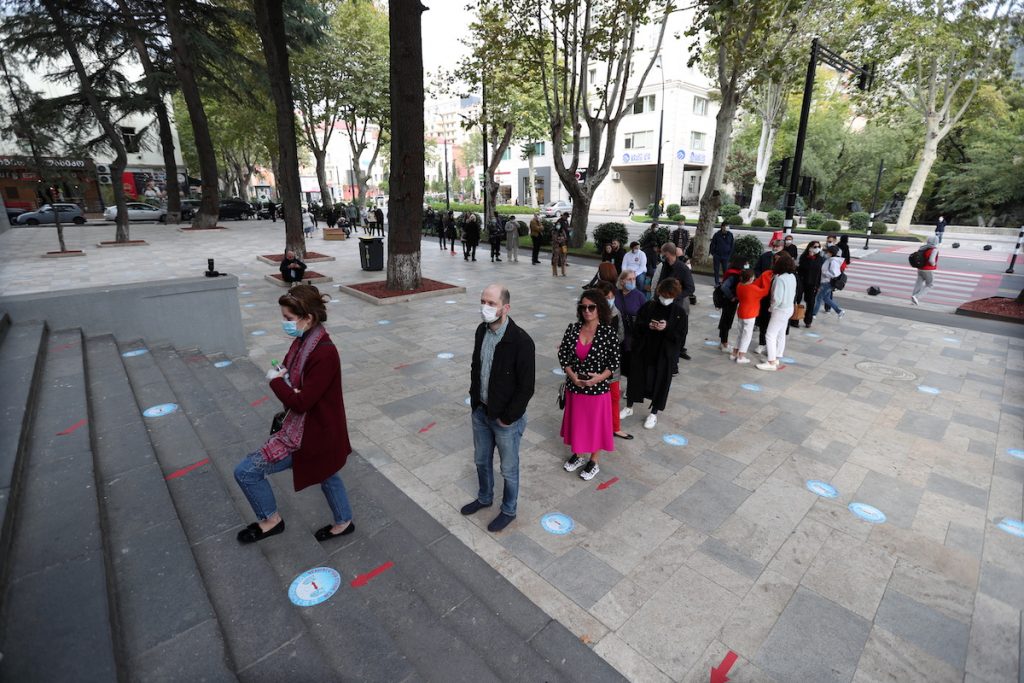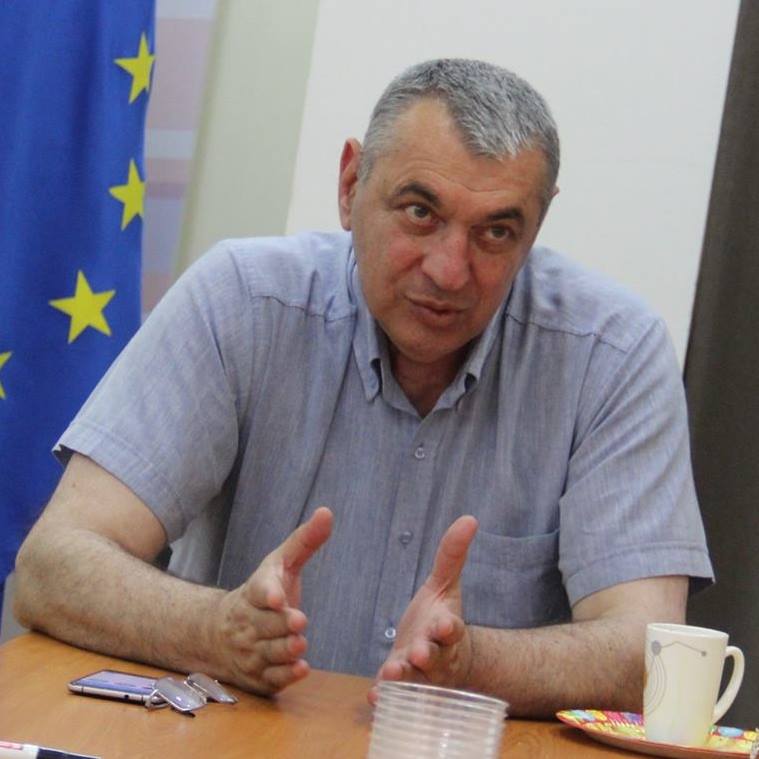Op-ed: elections show public doesn’t want Saakashvili’s UNM, but Georgian ruling party’s hold on parliament is fragile
The 2020 parliamentary elections have yet to come to an end – as a second round of elections will be held in 16 of the 30 majoritarian districts, while the opposition is protesting and demanding a re-election. That said, we can still touch on some of the results and trends.
- Opposition holding rally in Tbilisi demanding repeat parliamentary elections. Photo
- U.S. Embassy in Georgia: electoral irregularities not enough to invalidate results
How the elections were held
To begin with, I will say that it is obvious that these were not fair and democratic elections.
The illegal use of administrative resources, bribery, intimidation, appointment of criminals to monitor and control voters has long been a characteristic feature of national elections, and these elections were no exception.
However, this is a problem that all parties taking part in the elections take into account from the very beginning.
What happened in these elections, I think, will not be enough for the international community to recognize the results of the elections as illegitimate.

It also seems unrealistic to me that people, outraged by the results, regardless of their political preferences, will take to the streets en masse, as happened in Belarus.
Trends in these elections
Despite the fact that 48 parties and two electoral blocs took part in the elections, these elections also turned out to be, in fact, polarized.
The Georgian Dream and United National Movement received 48 and 27 percent respectively. The rest of the parties failed to gain even four percent.
The reason for this, in my opinion, was not so much that the entire political process of the ruling party is a ‘divine war’ with the United National Movement [Saakashvili’s party], but something rather different.
One reason is that the Georgian voter is not used to making diverse and multiparty choices.
For the voter, elections are a life-and-death struggle between the authorities and the opposition. In this struggle, the opposition is usually viewed as one participant, even if formally there are many parties.
This political tradition, if you can call it that, has existed for many years, and breaking a habit is difficult.
Another reason is that the agenda of all pro-Western parties is a revised copy of the United National Movement agenda, and people always prefer the original instead of the copy. By the way, if the main discourse of the National Movement is that Bidzina Ivanishvili is a pro-Russian oligarch, after whose coming to power the country began to decline, the rest of the pro-Western opposition spectrum either repeats this message of the United National Movement, or does not in any way contradict the party, and so they have no dedicated story of their own.
The only exception in this respect was the Girchi party, which has a very clear identity and a style characteristic only of it. I think that’s why it outperformed even parties with a financial advantage.
Finally, another reason for the polarization is that the electorate is in a sense accustomed to the opposition acting together, with one plan and one goal, “all against one”.
Recently, opposition parties have been holding joint rallies, standing together at briefings, protesting together, and so on. Such joint actions had their own objective reasons (rallies on June 20 [as a result of the visit of State Duma deputy Gavrilov], the demand for electoral changes [transition to a more proportional system], etc.).
One way or another, opposition-minded voters are used to the fact that the opposition is a single camp and it serves one cause. In such a situation, the role of the protagonist is automatically assigned to the strongest party in this unity. Consequently, most of the opposition-minded electorate will accumulate around this strong party.
All this together led to the fact that in the end the choice again stood between two poles. This circumstance should be significant for opposition political parties in terms of future activities.
The elections also showed that the administrative resource of the government is still working well and that the United National Movement is unacceptable for some parts of the public.
It also turned out that the new electoral system does not work for the authorities as effectively as the previous one.
Thanks to the new electoral system, the government is doing much worse than in 2016, despite the fact that then they received two percent less.
At that time, the government received 73 majoritarian districts [in the old system, the parliament with 150 seats elected 77 deputies according to the proportional system, 73 – according to the majoritarian system. The new rule is 120 to 30] and secured a constitutional majority.
Now, if the opposition does not decide to boycott and still takes seats in parliament, even if the ruling party wins all the majoritarian districts (which is highly doubtful if the opposition fights seriously in the second round), the ruling party’s advantage will be very fragile.
What are the prospects for the opposition?
Given the terrible post-pandemic situation, the socio-economic problems that await us ahead, as well as not forgetting about the ability of the Georgian Dream to cope with these problems, the opposition coalition instead of the majority of the ruling party can become a very real prospect without the need for a revolution already in the elections to local bodies authorities next year.
Nevertheless, the opposition is not yet going to come to terms with the results and is trying to achieve the cancellation of the election results through mass protests.
The option of refusing parliamentary mandates is also being considered, which, in my opinion, is a deeply misguided approach.
The government in parliament, as I have already noted, does not and will not have a great advantage, the political qualifications of the opposition are clearly higher, and in the parliamentary hall they will achieve much more than by street rallies.
I want to emphasize that getting into parliament does not mean that they should not protest the election results and should not try to get a more adequate result.
But if they leave the Georgian Dream party in parliament alone with the Alliance of Patriots, they will not cause them much discomfort – rather the opposite.
____________________________________________________________________________

The author of the article is David Zurabishvili, political columnist and former member of the Republican Party.


















